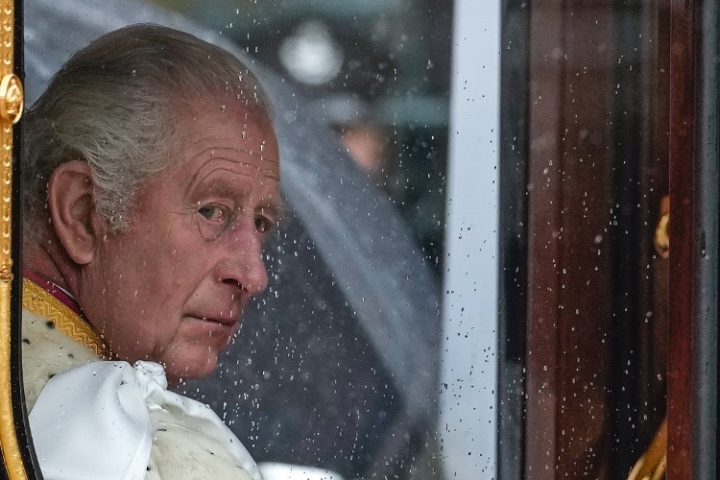
The contest between farmers and the authoritarian regulatory state in Europe continues to intensify.
On Friday, farmers left their parked tractors across pivotal road crossings along the Belgium-Netherlands border as a sign of protest against what they deem an insufferable combination of stifling government red tape and foreign competition.
As the Associated Press reported, the blockade was primarily the work of Belgian farmers (with the help of some Dutch), who aimed to obstruct transportation routes from the important ports of Antwerp and Rotterdam. The show of protest took place after irate farmers on Thursday set fire to hay bales and threw eggs and firecrackers at police not far from a meeting of European leaders in Brussels.
As AP reports:
While blockades sprang up on the Belgian-Dutch border, they were gradually easing around Paris and elsewhere in France after the French government on Thursday offered over 400 million euros ($436 million) in various measures. In Germany, however, lawmakers on Friday approved cuts to fuel subsidies for farmers that have prompted angry protests there.
Farmers complain that it’s becoming harder than ever to make a decent living as energy and fertilizer costs surge because of Russia’s war in Ukraine, more and cheaper farm imports enter Europe, and climate change-fueled droughts, floods or fires wreck their crops.
Many European leaders have expressed sympathy for the plight of the continent’s farmers, even if solutions have not materialized.
In Germany, for example, leaders incensed farmers by moving to eliminate fuel and vehicle tax exemptions for those involved in agriculture. After being met with protests, lawmakers left the vehicle tax exemption but voted to phase out the fuel exemptions over three years.
“We are going to see what we can reasonably do. But basically, I have a lot of sympathy for their complaints. We are now going to see how we can make that concrete,” said Jan Jambon, the prime minister of Belgium’s Flemish region.
EU Commission president Ursula von der Leyen said on Thursday she would push to cut red tape, and many EU leaders said they would vote against a proposed trade deal with South American countries unless the foreign imports are held to the same regulatory standards as the European farmers.
The farmers’ blockade is similar to one by Polish truckers last year, in which thousands of truckers were parked in cold weather for days, impeding the delivery of military and humanitarian goods to Ukraine.
The protest was in opposition to the European Union’s exemption of Ukrainian truckers from needing permits to get across the border. The Polish truckers argued that relaxing the rules for Ukrainians resulted in unfair competition and had driven down prices, making it difficult for the Poles to compete.
Like truckers, farmers play a crucial role in the economy; without agriculture, society would starve and crumble. Thus, farmers hold enormous political power, and the European elite’s actions eroding the livelihood of those involved in agriculture has unleashed a storm of populist fervor that the political right is taking advantage of.
As The New American previously reported, European right-wing parties such as France’s National Rally and the Alternative for Germany are now gaining traction by aligning themselves with agricultural movements all throughout Europe — movements that have gained momentum due to restrictive policies and the devastation caused by cheap imports from abroad.
As the European elections in June draw closer, indications from polls point to the alliance between farmers and populists contributing significantly to the rising allure of far-right parties among the European Union’s nearly nine million farmers. The opposition to the government’s favoring of inexpensive imports from Ukraine over local production, along with surges in diesel taxes amid inflation, is fostering increased dissatisfaction among farmers across the continent.
Anger among farmers was likely a factor in the triumph of right-wing populist Geert Wilders in last November’s Dutch national elections. It could soon lead to similar wins in France, Germany, and Ireland. Spain, Greece, and Poland have also experienced significant farmers’ protests.
Italy’s right-wing Prime Minister Giorgia Meloni attributes the financial struggles of her country’s farmers to what she perceives as the European Union’s “ideological approach” to agriculture and climate policies.
Meloni mentioned that her administration has secured significant funds to assist farmers in dealing with severe drought in certain regions of the country. However, she acknowledged that a substantial portion of the funds comes from the financial support Italy receives from the EU. Additionally, the Meloni government has expanded government aid for the agricultural use of diesel fuel this year.
Not only is free trade forcing European farmers to compete with the imports of nations that do not have the same standards and regulations (furthermore, agriculture workers in many foreign nations are paid drastically less than their European counterparts); it can be one-sided, with European farmers finding it difficult to access foreign markets due to non-tariff barriers. In the end, big corporations benefit, but the farmers get the short end of the stick.





















































